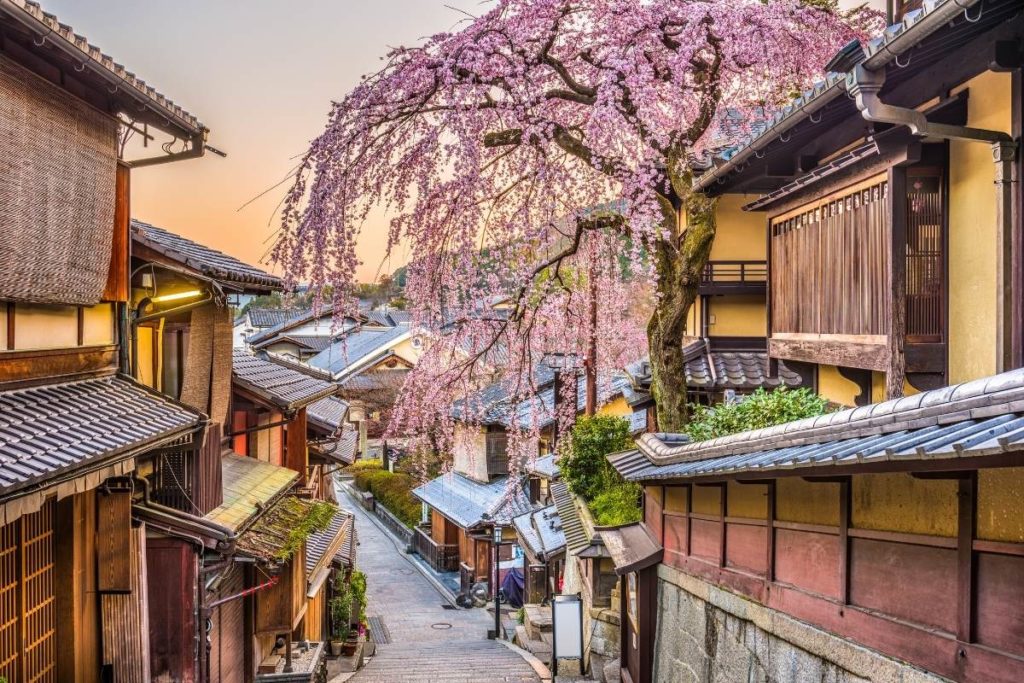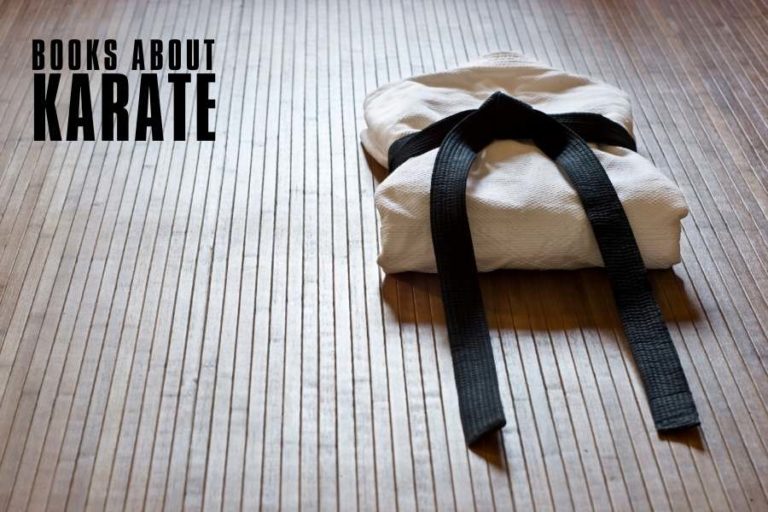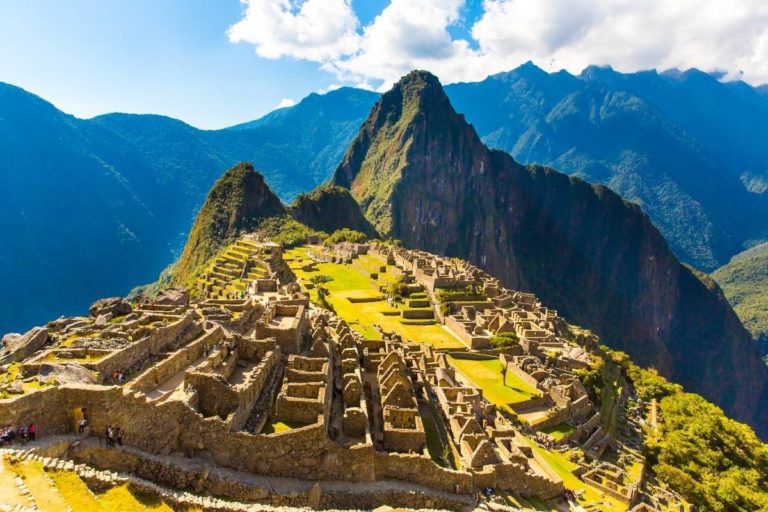
Nobel Prize Winners, Original Contemporary Writers, and Classic Japanese Novels, Here Are The 10 Best Japanese Authors You Should Know and Their Most Famous Books.
Japanese literature is astonishing. Their cultural contribution is far beyond what we can imagine, a peculiar way of writing: original, ironic, experimental.
Three of its writers won the Nobel Prize in Literature, several movies were inspired by Japanese Novels, Silence by Martin Scorsese, Norwegian Wood, Paprika, and many more.
Here are 10 of the Best Japanese Authors you should know and read.
Disclosure: Some of our items contain affiliate links (as an Amazon affiliate I earn from qualifying purchases).
1. Ryu Murakami
Prices pulled from the Amazon Product Advertising API on:
Product prices and availability are accurate as of the date/time indicated and are subject to change. Any price and availability information displayed on [relevant Amazon Site(s), as applicable] at the time of purchase will apply to the purchase of this product.
The most famous contemporary Japanese writer, Murakami is the author of some of the best surrealist stories of all time, his books are translated into more than 50 languages.
Born in Kobe in 1949, he moved to Tokyo where he opened a small jazz bar, Peter Cat, a place where everything spoke the language of cats.
Music and cats are a common theme in his work. As well as running, Murakami is, indeed, an enthusiast marathon runner.
Murakami’s first novel, Hear the Wind Sing, is part of the “Trilogy of the Rat”, followed by Pinball 1973, A Wild Sheep Chase, and Dance Dance Dance.
The most notable books are Norwegian Woods, Kafka on the Shore, and the most beautiful of all his books (according to me and a survey of Japanese literary experts) 1Q84 and The Wind-Up Bird Chronicle.
His last book, First Person Singular: Stories, published in 2021, is another bestseller, a collection of novels, eight literary paintings, all part of a single large fresco, to be admired in detail and its complete context.
Murakami always manages to transport us to a dreamlike and incredibly revealing world, full of love, eroticism, loss, reflections, and life.
2. Banana Yoshimoto
Prices pulled from the Amazon Product Advertising API on:
Product prices and availability are accurate as of the date/time indicated and are subject to change. Any price and availability information displayed on [relevant Amazon Site(s), as applicable] at the time of purchase will apply to the purchase of this product.
Banana Yoshimoto, the pen name of Japanese writer Mahoko Yoshimoto, is one of the most prolific contemporary Japanese authors.
Born in Tokyo in 1964, she wrote her first novel, Kitchen, in 1988. The book was reprinted more than 60 times in Japan and won several awards.
This book contains all the beauty of Banana Yoshimoto’s stories and writing. A novel capable of touching the heartstrings with sweetness and delicacy.
It is a novel about youthful loneliness. The brand new and shiny or old and lived-in kitchens, which fill the dreams of the protagonist Mikage, left alone in the world after her grandmother’s death, represent the warmth of an always desired family.
But the great idea of Banana is that the family can not only choose, but invent. Thus the father of the young friend of the protagonist Yuichi can become or turn out to be a mother and Mikage can elect them as his family, in a tragicomic crescendo of ambiguity.
The international success had started, her novel sold millions of copies worldwide.
Other famous Banana Yoshimoto books we suggest you read are Amrita, Moshi Moshi, and Goodbye Tsugumi.
3. Souseki Natsume
Prices pulled from the Amazon Product Advertising API on:
Product prices and availability are accurate as of the date/time indicated and are subject to change. Any price and availability information displayed on [relevant Amazon Site(s), as applicable] at the time of purchase will apply to the purchase of this product.
Born in 1867 as Natsume Kinnosuke, Sōseki was born to his parents late in her life, when they already had 5 grown-up children.
His presence in the family was a sort of disgrace, they gave him up for adoption but returned to his biological family when the foster parents divorced.
Fascinated by Chinese literature, he decided to study English to have more opportunities, he was the first Japanese who became an English literary scholar.
In the first years of the twentieth century, he started writing haiku and haitaishi.
In 1905, he reached public acclaim with the satirical novel I Am a Cat, a comic masterpiece. The main hobby of the protagonist, a stray cat, is to make observations about the follies of human actions.
Other successful novels he wrote in the following years are Kusamakura and Botchan.
Major themes in Sōseki’s novels are the relationship between the West and the East, ordinary people fighting life difficulties, duty, and desire.
4. Junichiro Tanizaki
Prices pulled from the Amazon Product Advertising API on:
Product prices and availability are accurate as of the date/time indicated and are subject to change. Any price and availability information displayed on [relevant Amazon Site(s), as applicable] at the time of purchase will apply to the purchase of this product.
Junichiro Tanizaki’s most well-known novel is The Makioka Sisters, a historical romance showing the traditional Osaka family life and female roles in the 1930s.
Influenced by Edgar Allan Poe and Oscar Wilde, a recurrent topic in his novels is the contrast between feminine beauty and moral integrity, the relationship between young girls and Pygmalion.
One of the most important examples of this narrative path is Chijin no Ai, a masochistic love affair story. The movie Love for an Idiot was inspired by this novel.
Another book following this “Lolita” genre, is Naomi, where a 28 years old guy tries to transform Naomi, a teenager influenced by western culture, into the perfect wife. The relationship soon turns into a comic masochistic love, full of obsessions and cultural confusion.
Tokyo, the city where Junichiro Tanizaki, and Osaka, where he moved after the 1923 Tokyo earthquake, are often used as symbols, in his narrative, as the conflict between traditions and modernity.
Tanizaki also wrote historical romances, The Secret History of the Lord of Musashi, a story of romantic and sexual obsession set in the 16th-century civil-war period.
Love for an Idiot was not the only movie from Tanizaki’s books, among others the Manioka Sisters, directed by Kon Ichikawa, Shunkinshō by Katsumi Nishikawa, and Odd Obsession based on the novel The Key.
5. Sei Shonagon
Prices pulled from the Amazon Product Advertising API on:
Product prices and availability are accurate as of the date/time indicated and are subject to change. Any price and availability information displayed on [relevant Amazon Site(s), as applicable] at the time of purchase will apply to the purchase of this product.
Sei Shōnagon was born around 966 in the aristocratic environment gathered around the imperial court of Heiankyō, today’s Kyōtō.
Sei Shōnagon was born around 966 in the aristocratic environment gathered around the imperial court of Heiankyō, today’s Kyōtō.
The Pillow Book of Sei Shonagon is a fascinating look at Japanese court culture during the 11th-century Heian period (794 to 1186).
It’s been said that Murasaki Shikibu and Sei Shonagon were rivals in the same literary circle and that the former found Sei Shonagon conceited.
And while The Tale of Genji is a long and layered tale of politics, love, and loss, The Pillow Book is less serious and full of Sei Shonagon’s observations, delights, and criticisms.
6. Shusaku Endo
Prices pulled from the Amazon Product Advertising API on:
Product prices and availability are accurate as of the date/time indicated and are subject to change. Any price and availability information displayed on [relevant Amazon Site(s), as applicable] at the time of purchase will apply to the purchase of this product.
Shūsaku Endō, born in Tokyo in 1923, was a part of a very little Japanese Roman Catholic community.
Martin Scorsese’s movie Silence is the adaptation of Endō’s novel of the same name, published in 1966.
It is the story of the persecution of Jesuit missionaries, sent to Japan in the 17th century.
A unique perspective on religions, stigma, and minorities in Japan.
7. Yukio Mishima
Prices pulled from the Amazon Product Advertising API on:
Product prices and availability are accurate as of the date/time indicated and are subject to change. Any price and availability information displayed on [relevant Amazon Site(s), as applicable] at the time of purchase will apply to the purchase of this product.
Yukio Mishima is the pseudonym of Hiraoka Kimitake.
One of the most controversial Japanese authors of all time, born in a samurai family in 1925, he was an Ultra Nationalist, immersed in the Japanese reality to which he deeply belonged, an almost metaphysical cultural idea.
Locking him in a western-oriented right-wing narrative is wrong.
For instance, he supported the student’s protests of 1968 in their idealist struggles to challenge the capitalist system, which according to Mishima, reduced man to a dimension by trampling on dignity and traditional values, which however for him were embodied in the transcendental, absolute figure of the emperor.
The first Mishima book is Confessions of a Mask, the story of a sensitive boy held captive by his ill grandmother, made him known on Japan’s literary scene.
In Forbidden Colours, an aging writer manipulates a young gay man who has become engaged for convenience and financial security.
In Temple of the Golden Pavilion, an acolyte at the temple is transfixed by its beauty in the belief that it will be destroyed by the bombing raids – and when it survives the war, he takes it on himself to destroy it.
And in Kyoko’s House, a boxer takes up right-wing politics, while an actor becomes involved in a sadomasochistic sexual relationship that ends in a double suicide.
The beauty and authenticity of the Empire were killed by Hiroshima and Nagasaki bombings.
Nationalism and militarist radicalization, lead Mishima to set up his own paramilitary association, Tate no Kai (Society of the shield), in 1968.
About ten years later, after publishing his last novel The sea of fertility, he will end his life with a Suppoku, the harakiri of the samurai with a sword in his belly, after breaking into the defense ministry with his followers and haranguing the military to rebel to restore the spiritual values of imperial Japan.
8. Yasunari Kawabata
Prices pulled from the Amazon Product Advertising API on:
Product prices and availability are accurate as of the date/time indicated and are subject to change. Any price and availability information displayed on [relevant Amazon Site(s), as applicable] at the time of purchase will apply to the purchase of this product.
Yasunari Kawabata was the first Japanese author to win the Nobel Prize for Literature, in 1968.
Born in Osaka in 1899, Kawabata was raised by his maternal grandfather and graduated from Tokyo Imperial University.
From 1927, he started writing short stories, the first was Izu dancer, but only 10 years later with the publication of the novel Snow Country, Kawabata became one of the most famous Japanese authors.
Among his internationally acclaimed books, Thousand Cranes, The Sound of the Mountain, The Lake, The Sleeping Beauty, and The Old Capital are a must-read.
Yasunari Kawabata committed suicide in 1972.
9. Sayaka Murata
Prices pulled from the Amazon Product Advertising API on:
Product prices and availability are accurate as of the date/time indicated and are subject to change. Any price and availability information displayed on [relevant Amazon Site(s), as applicable] at the time of purchase will apply to the purchase of this product.
Sayaka Murata is one of the most appreciated contemporary Japanese writers.
Born in 1979, Murata won several prestigious awards, among which Gunzo Prize for New Writers and the Akutagawa Award for her novel Convenience Store Woman.
If you have been to Japan, you surely notice how huge the convenience stores culture is, more than 55.000 identical places where “losers” work, immigrants, old people, housewives. Sayaka Murata was one of them, which made readers curious about how much of the story might be autobiographic.
Thirty-six-year-old Keiko Furukura is one of the many Japanese who never fit in, in school, in society, family expectations, until she finds her purpose in life by working in a convenience store, Smile Mart.
Unfortunately, many Murata books are not translated into English yet. Another book we suggest you read is Earthlings: A Novel Junyu, a brilliant novel about a woman believing she is an alien.
Read More Books About Countries
- 15 Books about South Africa to Understand its Complexity
- 12 Great Books on Malaysian History
- 4 Best books about Canada
- 4 Best books about South America
- Argentina’s Top 10 Fiction Books You Should Read Before You Die
- The 7 Best Kenyan Writers and Their Books
- 9 of The Best Japanese Authors of All Time
- 9 of Our Favorite Books About Malawi, Our Home
- Top 10 Books About South Korea. Novels, Culture, Historical Fiction















